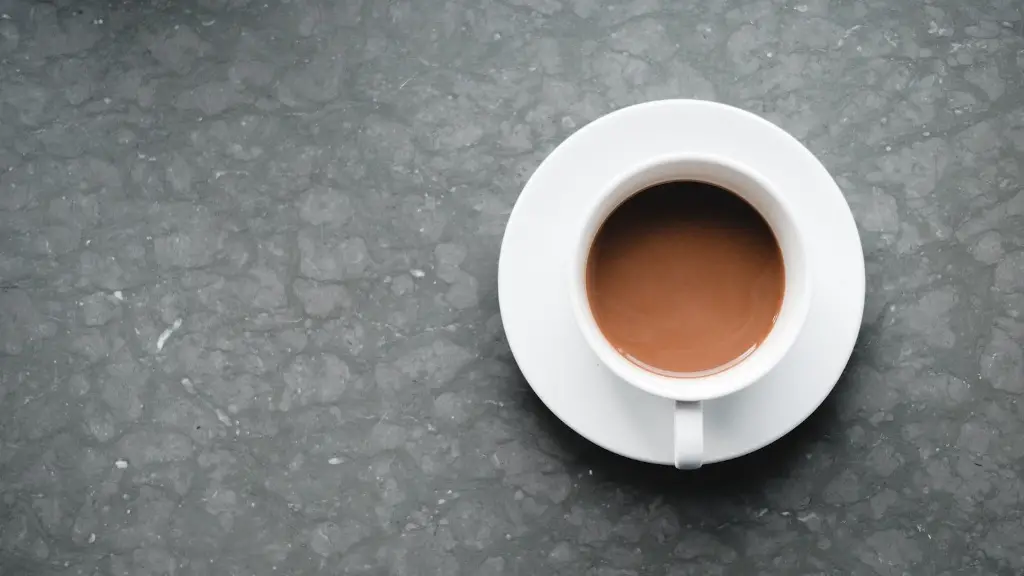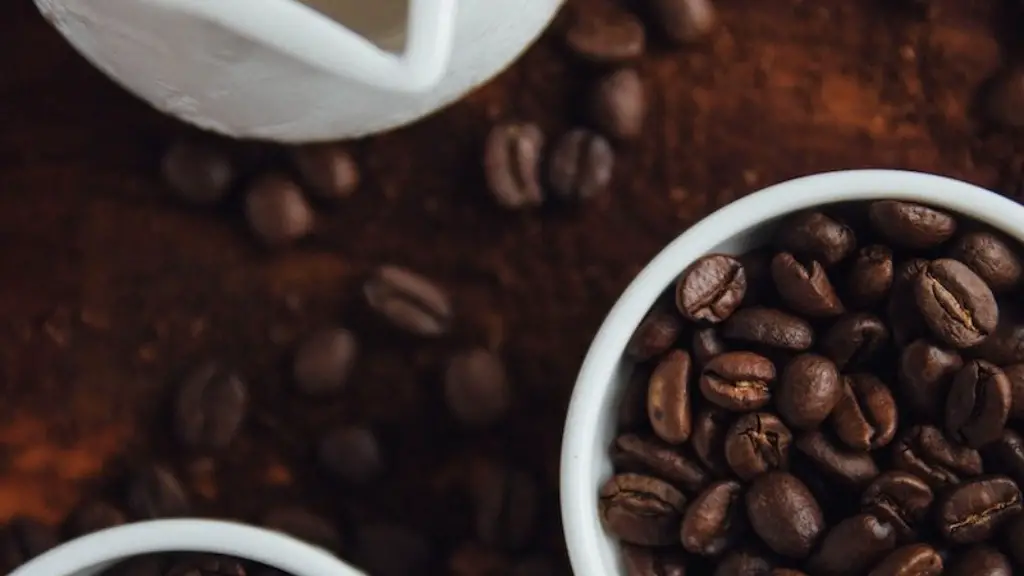Coffee is one of the most popular beverages in the world, consumed by millions of people on a daily basis. But with the rise of diets and health conscious lifestyles, many people are asking themselves if they can drink coffee while adhering to their diet plans. The answer isn’t a straightforward one, as it all depends on one’s individual dietary needs and lifestyle.
Coffee itself is calorie-free and contains no nutritional value, but it can certainly affect dietary efforts when paired with other ingredients. Adding dairy, sugar and other additives to coffee can negate some of the benefits of drinking it and add a significant calorie count. If a dieter is trying to reduce their calorie count, it’s likely not the best choice.
However, for those who are trying to increase their caffeine intake in order to improve energy levels and sports performance, it can be beneficial. Studies have shown that moderate doses of caffeine can provide an increase in energy and alertness. This can be especially beneficial for athletes looking to improve their performance. However, this could also mean consuming additional calories from dairy, sugar and syrups.
For those on restrictive diets, such as those who follow plant-based or ketogenic diets, coffee can be consumed as long as it is enjoyed black or with plant-based milks such as almond or oat. Plant-based sugars and maple syrup can also be added in moderation. For those following Weight Watchers points, coffee is 0 points, making it a great choice for those trying to adhere to their point system.
At the end of the day, if you’re trying to diet intelligently and give your body the nutrient fuel it needs, while also enjoying the benefits of drinking coffee, the best option is to stick to plain black coffee without any additives and enjoy it in moderation.
Can Coffee Actually Help You Lose Weight?
There’s a lot of conflicting information out there about dieting, and whether or not coffee can actually help you to lose weight. While research has suggested that caffeine can boost your metabolism and help to break down body fat, it’s important to note that this doesn’t necessarily mean it will lead to weight loss.
Caffeine can provide an energy boost, but it does not prevent the body from storing fat. And if a dieter is consuming calorie-heavy additions to their coffee drinks such as whole milk, sugar and syrups, drinking coffee could actually lead to extra pounds being gained. Additionally, as a stimulant, caffeine can cause some people to be unable to get a restful night’s sleep, further contributing to weight gain.
At the end of the day, coffee can certainly help to increase mental awareness and focus and may at times even boost the metabolism, but it’s important to understand that the stimulant effects of coffee likely won’t lead to long term weight loss.
Can Coffee Promote Healthier Eating Habits?
For many of us, coffee can also be an effective tool for curbing unhealthy cravings. Studies have suggested that coffee can suppress your appetite and may help to reduce your urge for unhealthy snacks and desserts. Therefore, drinking coffee is a great way to keep yourself feeling full and stop yourself from reaching for unhealthy foods.
Additionally, coffee has also been linked to increasing levels of antioxidants in the body. Antioxidants are beneficial to health and can help to protect cells from being damaged.
When consumed in moderation, coffee can be beneficial to your overall health and can even help you fight off unhealthy cravings, meaning you’re more likely to stick to your diet and eating plan.
What Are the Benefits of Drinking Coffee on a Diet?
For those who are following their diets and looking for ways to stay awake and energized throughout the day, coffee is a great choice. As discussed earlier, coffee can give you a boost of energy, helping you to stay focused and alert. Additionally, as a calorie-free beverage it won’t ruin your calorie count for the day, providing an additional benefit for dieters.
That said, it’s important to remember that coffee should still be consumed in moderation. Caffeine is a stimulant and can cause some people to be unable to sleep, so it’s important to consider your individual needs before drinking coffee throughout the day.
Can Coffee Help to Reduce Bloating?
Another benefit of drinking coffee while on a diet is that it can help to reduce bloating. Many dieters experience bloating when they reduce their calorie intake and change their eating habits, and coffee can provide a solution.
Caffeine has been found to help reduce water retention in the body, meaning it can help to reduce the bloating that can be caused by eating certain foods and due to changes in diet. Additionally, it can help to improve digestion, ensuring that all of the nutrients from your food are absorbed properly.
Overall, the consumption of coffee in moderation can have many beneficial effects for those on a diet, from reducing cravings and reducing bloating, to improving mental focus and clarity.
Are There Any Potential Downsides to Drinking Coffee on a Diet?
One potential downside of consuming coffee while on a diet is that it can affect the way your body processes other foods. Caffeine is a stimulant and can increase the metabolism, which may lead to a faster breakdown of nutrients in the body.
While this isn’t necessarily a bad thing, it can mean that the nutrients from other foods may not be absorbed properly. Additionally, caffeine can cause blood pressure to rise, so for those with hypertension, it is important to discuss caffeine consumption with a medical professional before including it in a diet.
Finally, caffeine can be habit-forming and can cause some people to be unable to enjoy a peaceful night’s sleep, further contributing to weight gain. Therefore, it’s important to ensure that coffee is consumed in moderation and that it is not used as a replacement for healthy eating habits.
Can Drinking Coffee Interfere with Weight Loss Supplements?
For those taking supplements as part of their diet plan, it’s important to note that some weight loss supplements can interact negatively with caffeine. Some weight loss supplements contain substances such as green tea extract and caffeine, so it’s important to ensure that you are not drinking too much caffeine or taking too many supplements that contain caffeine at the same time.
If you are taking supplements, it’s important to speak to your medical professional about the potential interactions that could occur with caffeine and other diet-related supplements. Unless you are under medical instruction, it’s best to avoid taking too many supplements in combination with caffeine.
What’s the Final Verdict on Coffee and Dieting?
The final verdict is that for those looking to maintain their diet and still enjoy the many benefits of coffee, moderation is key. As long as it is consumed without high-calorie additives, coffee can provide an energy boost without ruining your healthy diet. Additionally, it can help to curb cravings and reduce bloating, making it a great choice for those looking to improve their dieting plans.



